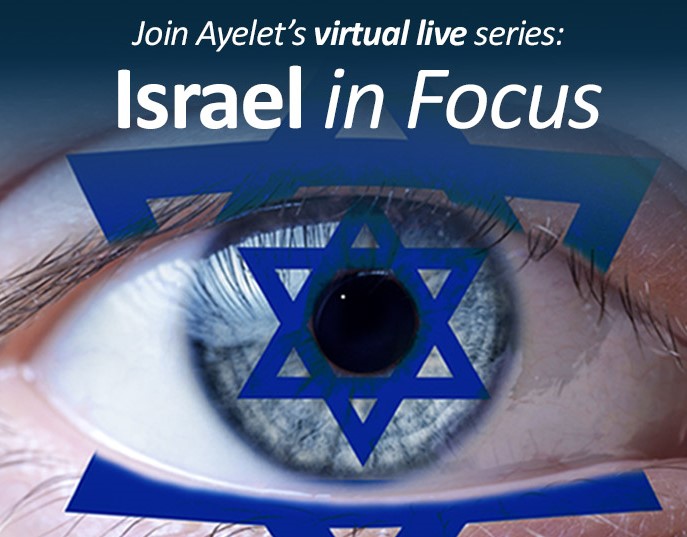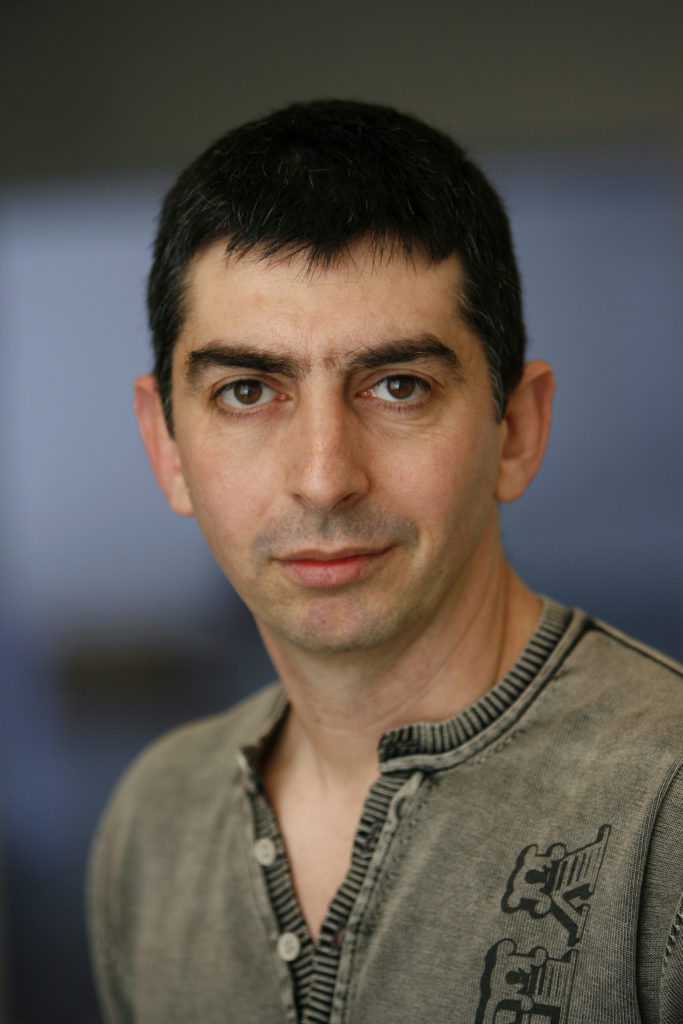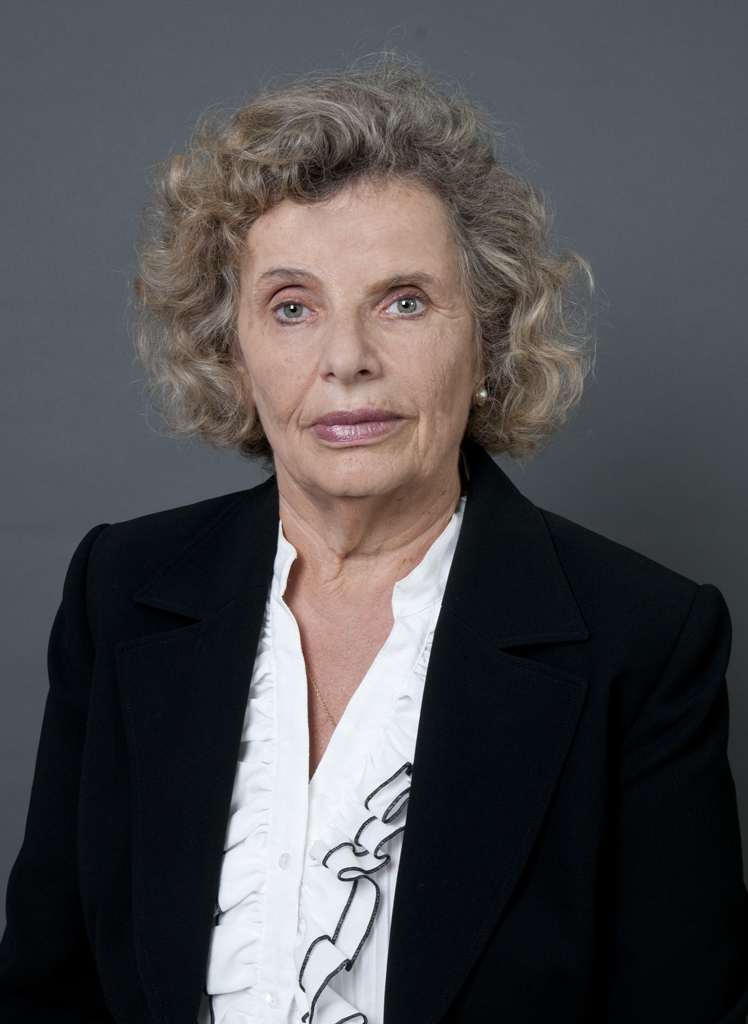Discover Israel Through Israeli Eyes… Virtually
PROGRAM:
****All programs begin at 2:00 pm ET****
Feb 28 – PROF. PAUL LIPTZ, Noted Historian:
Israel’s Many Tribes
March 7 – GIL HOFFMAN, Jerusalem Post Chief Political Correspondent:
An Insider’s Look at the March 2021 Israeli Election
March 14 – ADI NES, Acclaimed Photographer:
Issues of Identities
March 21 – RACHEL KORAZIM, Enlightening Educator and Hartman Institute Scholar:
Freedom of Expression, or How Do We Know Israel is a Democracy?
DETAILS:
- Four unique explorations of the Israel experience
- Featuring live moderated chat, and post-talk Q&A with scholars in Israel each week
- Program Cost: $75 for ALL FOUR SESSIONS
- Hosted/moderated by Ayelet Tours
- Sessions are recorded – view missed sessions via private link
- Session size is limited – register now!
REGISTER NOW!
Deep Dive Details:
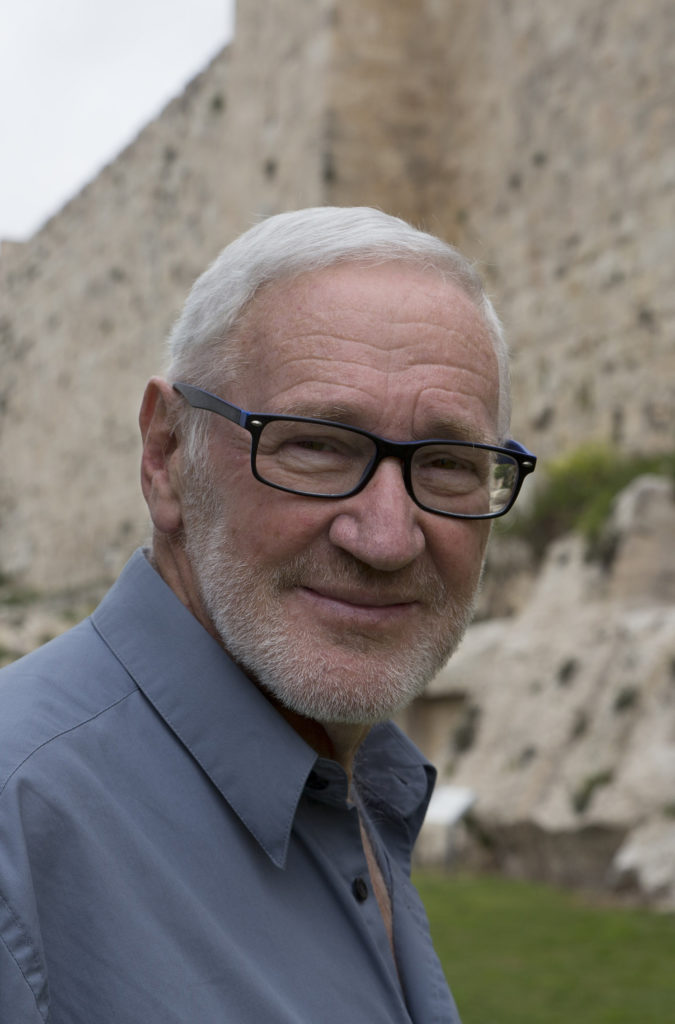
Meet Historian Prof. Paul Liptz (Feb 28):
Israel’s Many Tribes
How Israelis View Each Other, and Their Place in the World
From its foundation, Israel has been a melting pot of different ethnicities and religions tasked with the burden of living together. Israeli President Reuven Rivlin delineated “Four Tribes” in his well-known 2015 speech – secular, national-religious, ultra-orthodox (“Haredi”), and Arab. We will explore Israel’s progress from her history as young state to her current struggles and successes. We will evaluate the schism this “tribalism” presents in modern day Israel, and the opportunities presented in Israel’s global role as the “Start-up Nation”.
Paul Liptz, a social historian, was on the Tel Aviv University faculty for 40 years, teaching graduate and undergraduate students in the Department of Middle East and African History and the International School, where he dealt with a wide range of topics. His main interests are History of the Yishuv [Pre-State], the Modern State of Israel and Arab Women and Nationalism in the Middle East. He taught graduate students at the Hebrew Union College in Jerusalem for 25 years as well as at the Conservative Movement seminary, dealing with modern Jewish history, Israeli society and the contemporary Middle East. In the Israeli army reserves, he lectured officers and non-commissioned officers on nonmilitary realms. He is still active in Israel and is involved in various academic and educational fields.
In the last few decades, he has traveled the world extensively, lecturing and conducting workshops in some twenty countries. He has also been a visiting scholar with many American groups in Central and Eastern Europe. Paul was born in Rhodesia (Zimbabwe) and came as a volunteer to Israel one day before the Six Day War on June 4, 1967. He decided to stay in Israel, married Brenda and they have 4 children and 11 grandchildren.
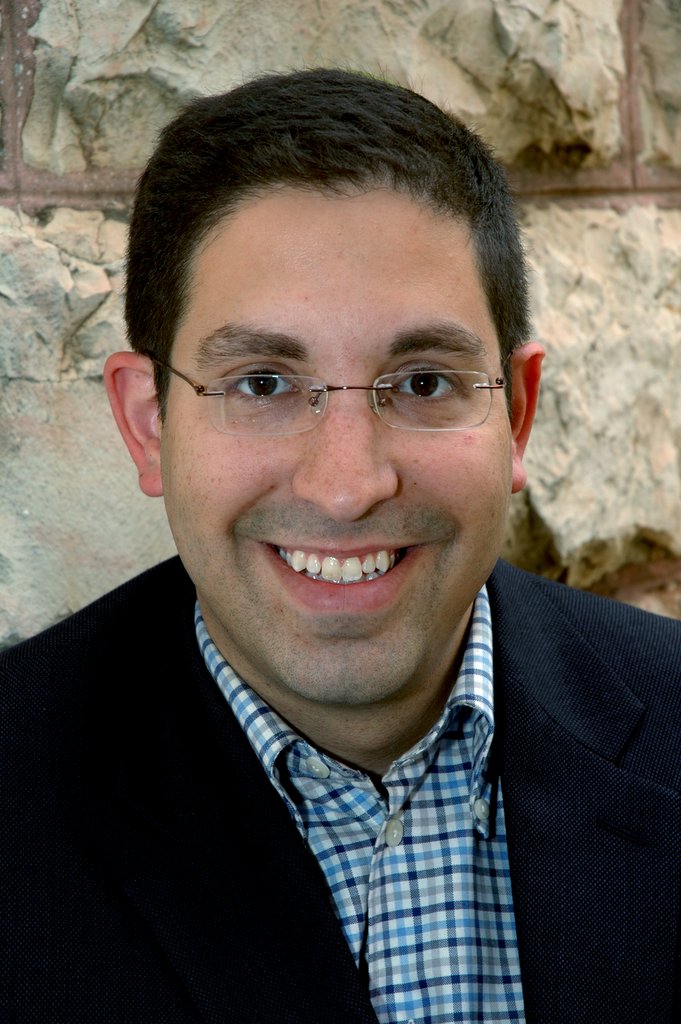
Meet Journalist Gil Hoffman (Mar 7):
An Insider’s Look at the March 2021 Israeli Election
Prime Minister Benjamin Netanyahu’s political future is up in the air following the March 23rd election. Will Netanyahu be able to form a new government, will Israel get a new prime minister for the first time since 2009, or will political instability in Israel continue to yet another election?
Gil Hoffman will provide an insider’s look at the mudslinging in the ongoing campaign, the government formation that will take place and the future decisions the next government will make on diplomatic and security issues and matters of religion and state. He will focus on the impact of the Israeli election on relations with the new administration in Washington and with American Jewry.
Gil Hoffman is the chief political correspondent and analyst for The Jerusalem Post, teaches international communications at Israel’s College of Management, and hosts a weekly radio show on the Land of Israel Network. Well-connected to Israeli and Palestinian leaders, he has interviewed every major figure across the Israeli political spectrum, has been interviewed by top media on six continents and is a regular analyst on CNN, Al-Jazeera and other news outlets. Called “The most optimistic man in Israel” by Israel Television, Hoffman provides a behind the scenes look at the intrigue and humor in the Israeli political arena.
Gil was raised in Chicago, graduated Magna Cum Laude from Northwestern University’s School of Journalism, and wrote for the Miami Herald and Arizona Republic before moving to Israel. A reserve soldier in the IDF Spokesman’s Unit, he has lectured in every major English-speaking country in the world, more than half the Canadian provinces, and recently made history in Hawaii when he became the first speaker to lecture about Israel in all 50 US states.
Meet Acclaimed Photographer Adi Nes (Mar 14):
Issues of Identities
In a lecture accompanied by a visual presentation of his works, the artist will describe the various faces of Israel and Israeli identity and as they are reflected in his photography. Nes will touch upon issues related to hidden layers in his photographs, the use of canonical icons and social ideas ascribed to them. He will address how staged photography creates reality as opposed to casual photography which usually reflects reality.
Adi Nes (born 1966, Kiryat Gat, Israel), is one of Israel’s most prominent photographers. Since his graduation from the Bezalel Academy of Art and Design, Jerusalem (1992), his works have been presented in numerous solo and group exhibitions in Israel and abroad, achieving great recognition and success. Nes’s body of work includes five main series to date: Soldiers, Boys, Prisoners, Biblical Stories and The Village.
Nes’s large scale and multi-layered color photographs, executed with meticulous light and print qualities, draw inspiration from his personal biography, as well as from collective Israeli memory and universal art history. His works correspond with famous pieces from the art canon, as well as with contemporary photography, mythologies, film, media and journalism, fashion, and more. Nes diverts these borrowed images towards new contexts, thus creating a new and critical look at contemporary reality. His creations have won numerous Nes various prestigious awards. His photographs have been acquired by many of the most celebrated public and private art collections, and have been sold successfully in international art auctions.
Nes holds a teaching position at the Bezalel Academy of Art and Design, Jerusalem (since 2002), and gives courses and lectures in various art academies and universities world wide.
Meet Educator Rachel Korazim (Mar 21):
Freedom of Expression, or How Do We Know Israel is a Democracy?
In October 1953 the Israeli Supreme Court with Justice Agranat presiding, had ruled against the administrative order to close Kol Haam and Al Intichad; two Communist newspapers that had criticized the government. This ruling is the first legal document that proclaims that Israel is a Democracy and the freedom of expression is one of its most precious values. In this session we shall examine an 11 Page earlier case of the right for free speech in the Knesset, seen through an Alterman poem. We will study the offending 1953 article as well as Agrant’s verdict, that has since become the most frequently quoted one in Israel’s court houses.
Rachel is a freelance Jewish education consultant in curriculum development for Israel and Holocaust education. She engages audiences worldwide through innovative presentations built around the stories, poems and songs of Israel’s best writers. Her thought-provoking talks open a window onto Israeli society, inviting listeners to engage with the country and its history in new ways. Until 2008, Rachel was the Academic Director of Distance learning programs at The Jewish Agency for Israel, Department of Education.
Born in Israel, she served in the I.D.F as an officer in the central training base for women and was later a member of the I.D.F delegation to Niger (West Africa). She is a graduate of Haifa University with a PhD in Jewish education. As one of the founders and directors of a special program for soldiers from disadvantaged backgrounds, she was responsible for creating the educational framework and training teachers for the implementation of the program. Rachel teaches at Israel’s well known learning centers such as Pardes and the Shalom Hartman Institutes as well as in numerous Jewish communities worldwide. In her free time, Rachel enjoys scuba diving in the cenotes of Playa del Carmen in Mexico and the amazing coral sites of the Red Sea. Rachel is also a very active grandmother of eight grandchildren who all live in Israel.
REGISTER NOW!
A short representation of Adi Nes’ Portfolio

Meet Historian Prof. Paul Liptz (Feb 28):
Israel’s Many Tribes
How Israelis View Each Other, and Their Place in the World
From its foundation, Israel has been a melting pot of different ethnicities and religions tasked with the burden of living together. Israeli President Reuven Rivlin delineated “Four Tribes” in his well-known 2015 speech – secular, national-religious, ultra-orthodox (“Haredi”), and Arab. We will explore Israel’s progress from her history as young state to her current struggles and successes. We will evaluate the schism this “tribalism” presents in modern day Israel, and the opportunities presented in Israel’s global role as the “Start-up Nation”.
Paul Liptz, a social historian, was on the Tel Aviv University faculty for 40 years, teaching graduate and undergraduate students in the Department of Middle East and African History and the International School, where he dealt with a wide range of topics. His main interests are History of the Yishuv [Pre-State], the Modern State of Israel and Arab Women and Nationalism in the Middle East. He taught graduate students at the Hebrew Union College in Jerusalem for 25 years as well as at the Conservative Movement seminary, dealing with modern Jewish history, Israeli society and the contemporary Middle East. In the Israeli army reserves, he lectured officers and non-commissioned officers on nonmilitary realms. He is still active in Israel and is involved in various academic and educational fields.
In the last few decades, he has traveled the world extensively, lecturing and conducting workshops in some twenty countries. He has also been a visiting scholar with many American groups in Central and Eastern Europe. Paul was born in Rhodesia (Zimbabwe) and came as a volunteer to Israel one day before the Six Day War on June 4, 1967. He decided to stay in Israel, married Brenda and they have 4 children and 11 grandchildren.

Meet Journalist Gil Hoffman (Mar 7):
An Insider’s Look at the March 2021 Israeli Election
Prime Minister Benjamin Netanyahu’s political future is up in the air following the March 23rd election. Will Netanyahu be able to form a new government, will Israel get a new prime minister for the first time since 2009, or will political instability in Israel continue to yet another election?
Gil Hoffman will provide an insider’s look at the mudslinging in the ongoing campaign, the government formation that will take place and the future decisions the next government will make on diplomatic and security issues and matters of religion and state. He will focus on the impact of the Israeli election on relations with the new administration in Washington and with American Jewry.
Gil Hoffman is the chief political correspondent and analyst for The Jerusalem Post, teaches international communications at Israel’s College of Management, and hosts a weekly radio show on the Land of Israel Network. Well-connected to Israeli and Palestinian leaders, he has interviewed every major figure across the Israeli political spectrum, has been interviewed by top media on six continents and is a regular analyst on CNN, Al-Jazeera and other news outlets. Called “The most optimistic man in Israel” by Israel Television, Hoffman provides a behind the scenes look at the intrigue and humor in the Israeli political arena.
Gil was raised in Chicago, graduated Magna Cum Laude from Northwestern University’s School of Journalism, and wrote for the Miami Herald and Arizona Republic before moving to Israel. A reserve soldier in the IDF Spokesman’s Unit, he has lectured in every major English-speaking country in the world, more than half the Canadian provinces, and recently made history in Hawaii when he became the first speaker to lecture about Israel in all 50 US states.
Meet Acclaimed Photographer Adi Nes (Mar 14):
Issues of Identities
In a lecture accompanied by a visual presentation of his works, the artist will describe the various faces of Israel and Israeli identity and as they are reflected in his photography. Nes will touch upon issues related to hidden layers in his photographs, the use of canonical icons and social ideas ascribed to them. He will address how staged photography creates reality as opposed to casual photography which usually reflects reality.
Adi Nes (born 1966, Kiryat Gat, Israel), is one of Israel’s most prominent photographers. Since his graduation from the Bezalel Academy of Art and Design, Jerusalem (1992), his works have been presented in numerous solo and group exhibitions in Israel and abroad, achieving great recognition and success. Nes’s body of work includes five main series to date: Soldiers, Boys, Prisoners, Biblical Stories and The Village.
Nes’s large scale and multi-layered color photographs, executed with meticulous light and print qualities, draw inspiration from his personal biography, as well as from collective Israeli memory and universal art history. His works correspond with famous pieces from the art canon, as well as with contemporary photography, mythologies, film, media and journalism, fashion, and more. Nes diverts these borrowed images towards new contexts, thus creating a new and critical look at contemporary reality. His creations have won numerous Nes various prestigious awards. His photographs have been acquired by many of the most celebrated public and private art collections, and have been sold successfully in international art auctions.
Nes holds a teaching position at the Bezalel Academy of Art and Design, Jerusalem (since 2002), and gives courses and lectures in various art academies and universities world wide.
Meet Educator Rachel Korazim (Mar 21):
Freedom of Expression, or How Do We Know Israel is a Democracy?
In October 1953 the Israeli Supreme Court with Justice Agranat presiding, had ruled against the administrative order to close Kol Haam and Al Intichad; two Communist newspapers that had criticized the government. This ruling is the first legal document that proclaims that Israel is a Democracy and the freedom of expression is one of its most precious values. In this session we shall examine an 11 Page earlier case of the right for free speech in the Knesset, seen through an Alterman poem. We will study the offending 1953 article as well as Agrant’s verdict, that has since become the most frequently quoted one in Israel’s court houses.
Rachel is a freelance Jewish education consultant in curriculum development for Israel and Holocaust education. She engages audiences worldwide through innovative presentations built around the stories, poems and songs of Israel’s best writers. Her thought-provoking talks open a window onto Israeli society, inviting listeners to engage with the country and its history in new ways. Until 2008, Rachel was the Academic Director of Distance learning programs at The Jewish Agency for Israel, Department of Education.
Born in Israel, she served in the I.D.F as an officer in the central training base for women and was later a member of the I.D.F delegation to Niger (West Africa). She is a graduate of Haifa University with a PhD in Jewish education. As one of the founders and directors of a special program for soldiers from disadvantaged backgrounds, she was responsible for creating the educational framework and training teachers for the implementation of the program. Rachel teaches at Israel’s well known learning centers such as Pardes and the Shalom Hartman Institutes as well as in numerous Jewish communities worldwide. In her free time, Rachel enjoys scuba diving in the cenotes of Playa del Carmen in Mexico and the amazing coral sites of the Red Sea. Rachel is also a very active grandmother of eight grandchildren who all live in Israel.

